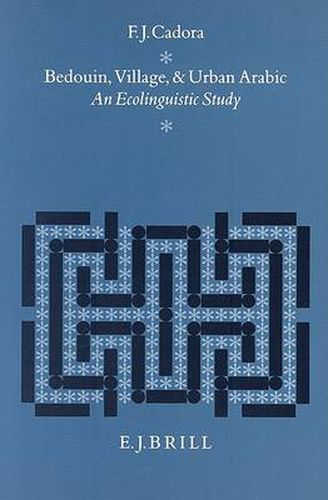Readings Newsletter
Become a Readings Member to make your shopping experience even easier.
Sign in or sign up for free!
You’re not far away from qualifying for FREE standard shipping within Australia
You’ve qualified for FREE standard shipping within Australia
The cart is loading…






As a culture area, the Arab world has had different ecological structures - nomadic (bedouin) and sedentary (rural and urban) - with parallel linguistic systems. Throughout the long history of the Arabic language, the development of transitional stages has generated linguistic correlates in Arabic dialects. The notion ecolinguistics , combined and reinforced with the concepts of compatibility and lexical diffusion , is introduced in this study to identify such a sociolinguistic change. The domain of change for this ecolinguistic variation is the extended family wherein the middle generation develops new lexical items by the application of ecolinguistic rules. Cadora describes these rules, which speakers generate as they gradually acquire an awareness of the social parameters for their use. The theoretical framework and the putative results of this study are offered to stimulate further research in the causation and implementation of linguistic change, especially in terms of quantitative analyses of ecolinguistic variation and lexical diffusion in the Arabic language.
$9.00 standard shipping within Australia
FREE standard shipping within Australia for orders over $100.00
Express & International shipping calculated at checkout
As a culture area, the Arab world has had different ecological structures - nomadic (bedouin) and sedentary (rural and urban) - with parallel linguistic systems. Throughout the long history of the Arabic language, the development of transitional stages has generated linguistic correlates in Arabic dialects. The notion ecolinguistics , combined and reinforced with the concepts of compatibility and lexical diffusion , is introduced in this study to identify such a sociolinguistic change. The domain of change for this ecolinguistic variation is the extended family wherein the middle generation develops new lexical items by the application of ecolinguistic rules. Cadora describes these rules, which speakers generate as they gradually acquire an awareness of the social parameters for their use. The theoretical framework and the putative results of this study are offered to stimulate further research in the causation and implementation of linguistic change, especially in terms of quantitative analyses of ecolinguistic variation and lexical diffusion in the Arabic language.